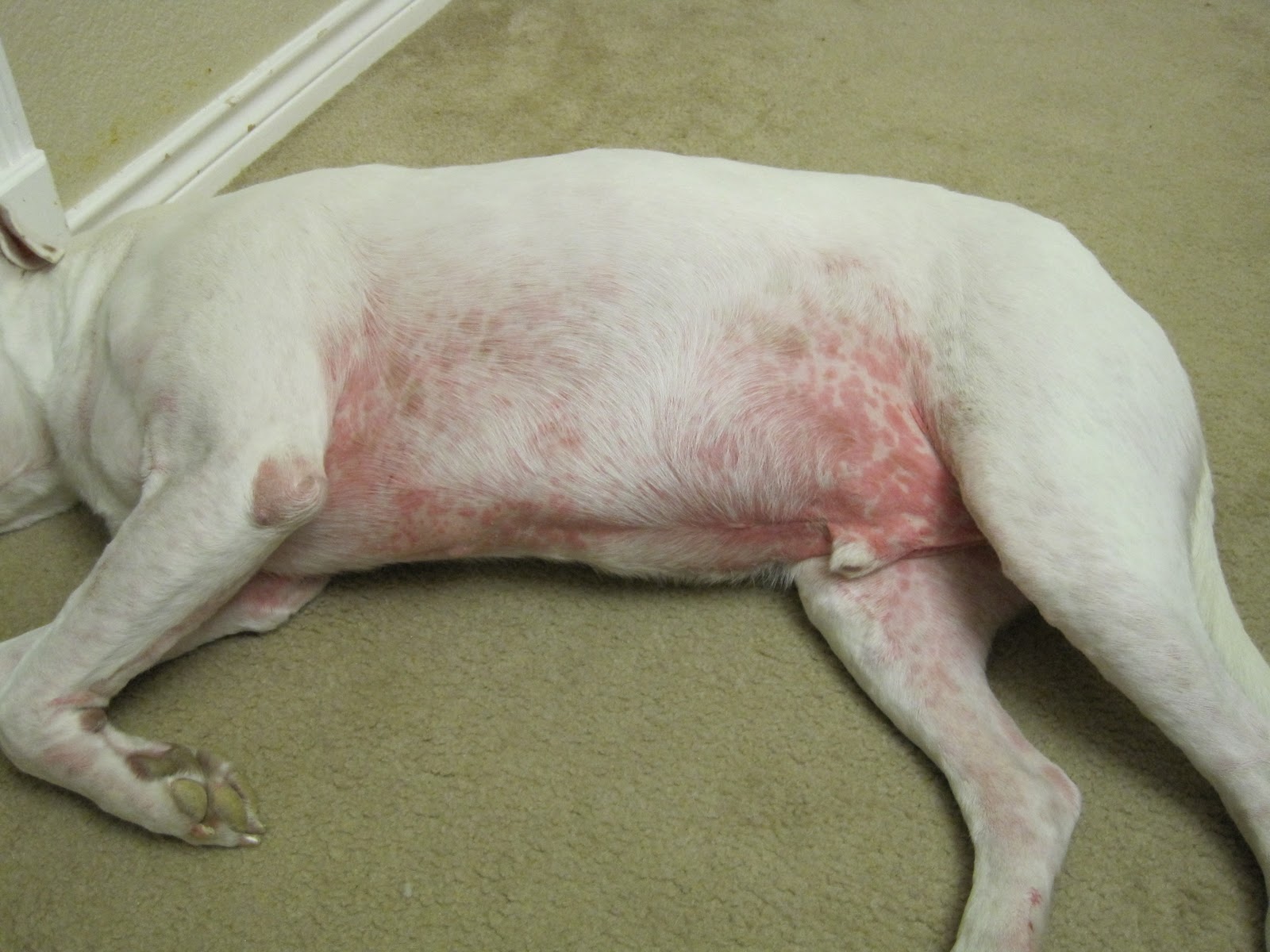Dog Belly Rash? Seriously, WTF Is Up With These Red Bumps?

So, you're petting your furry best friend, and bam! You feel them. Little red bumps on their belly. What gives? Are these things contagious? Are they going to take over my house like some sort of canine pox? Relax. It's probably not the end of the world. But it's definitely worth figuring out.
Red bumps, or irritated skin, on a dog's belly can be caused by a whole host of things, from something as simple as an allergic reaction to their new shampoo to something more serious requiring a vet visit. This guide is your crash course in canine belly bumps. We'll dive into the common culprits, when to worry, and how to get your pup back to their happy, belly-rub-loving self. Because let's be honest, nobody likes an itchy belly.
A dog's skin is their largest organ, and it's often the first indicator that something's amiss. Those red spots you're seeing could be a sign of anything from contact dermatitis (think poison ivy for dogs) to a full-blown allergic reaction to something in their food or environment. Fleas, ticks, and mites are also frequent offenders, leaving behind itchy welts and bumps.
The location of the bumps – specifically on the belly – is also telling. A dog's belly is relatively hairless and has thinner skin compared to other areas, making it more susceptible to irritants and parasites. Think of it as the equivalent of the sensitive skin on our inner arms. Plus, dogs tend to lie on their bellies, increasing their exposure to potential allergens on carpets, grass, or even your freshly cleaned floors.
Now, before you start diagnosing your dog based on a quick Google search (we've all been there), it's important to remember that we're not vets. This information is for general knowledge and shouldn't replace a professional opinion. If your dog seems uncomfortable, the bumps are spreading, or they're exhibiting other symptoms like excessive scratching, lethargy, or loss of appetite, it's time to call the vet.
Dealing with a canine skin rash can be frustrating, but taking a systematic approach can help. Start by carefully examining the affected area. Note the size, shape, and color of the bumps. Are they filled with fluid? Are they dry and flaky? This information will be helpful when you talk to your vet.
If you suspect fleas or ticks, use a flea comb and check for any tiny critters. Consider your dog's recent activities. Have they been swimming? Rolling in something questionable? Did you change their food or introduce a new toy? Even seemingly insignificant changes can trigger skin reactions.
While it’s tempting to try home remedies, proceed with caution. Some human-safe treatments can be toxic to dogs. Always consult with your vet before applying anything to your dog's skin.
Advantages and Disadvantages of Dealing with Skin Issues
| Advantages | Disadvantages |
|---|---|
| Early detection can prevent more serious issues | Can be time-consuming and expensive to diagnose and treat |
| Improves dog's comfort and quality of life | Can be stressful for both the dog and owner |
Frequently Asked Questions
Q: What are the most common causes of red bumps on a dog's belly?
A: Common causes include allergies, parasites, contact dermatitis, and infections.
Q: When should I take my dog to the vet?
A: If the bumps are spreading, your dog seems uncomfortable, or they're showing other symptoms, it's time for a vet visit.
Q: Can I use human creams on my dog?
A: No, many human products are toxic to dogs. Always consult your vet.
Q: How can I prevent skin issues in my dog?
A: Regular grooming, parasite prevention, and a healthy diet can help.
Q: Are skin bumps on dogs contagious?
A: Some skin conditions can be contagious to other dogs or even humans.
Q: What are some home remedies for dog skin irritation?
A: Oatmeal baths and coconut oil can sometimes provide relief, but always check with your vet first.
Q: How can I tell if my dog has fleas?
A: Use a flea comb and look for small, dark insects or "flea dirt" (flea feces).
Q: Can stress cause skin problems in dogs?
A: Yes, stress can weaken the immune system and make dogs more susceptible to skin issues.
Those annoying little red bumps on your dog's belly can be a real pain – for both you and your pup. While they often stem from minor issues, it's crucial to take them seriously. By understanding the potential causes, recognizing when to seek professional help, and taking proactive steps, you can ensure your furry friend stays healthy and comfortable. Remember, a happy belly makes for a happy dog. Don’t hesitate to consult with your veterinarian for any concerns about your dog's skin health. They are your best resource for diagnosis and treatment, ensuring your four-legged companion gets the best possible care. So, keep an eye on that belly, and don’t be afraid to ask for help when needed. Your dog will thank you for it.
Navigating medicare part c with aarp smart strategies
Unlocking the power of benjamin moore flat black paint
Sauk county motorcycle accidents understanding the risks and promoting safety












